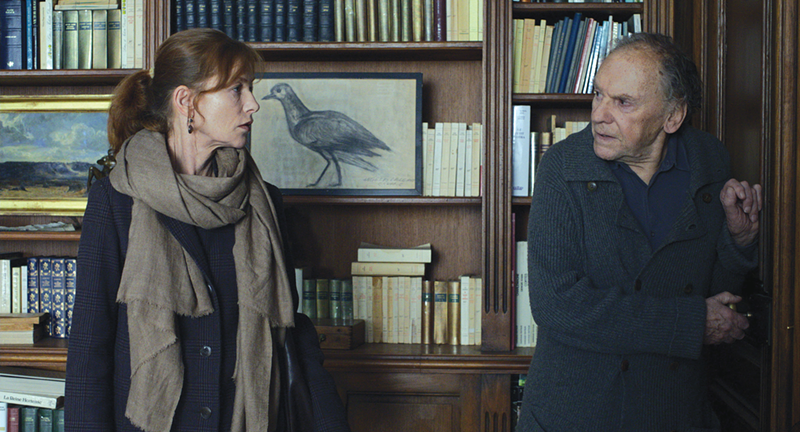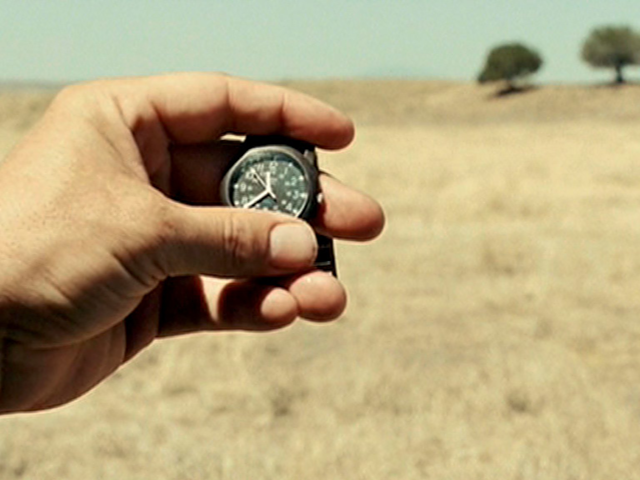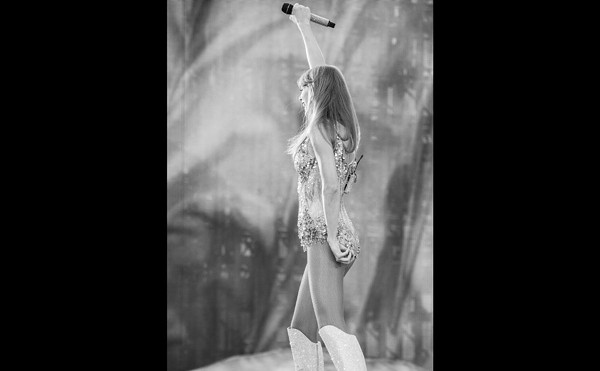Amour, the brave new film from Michael Haneke, is a story that speaks to the notion and philosophies espoused by Dr. Cornel West, in particular, his consideration of what it means to be human. For West, being human deals with living and struggling in the face of inevitable death, fighting daily despite having an awareness of the approaching end. In recent years, he has refined this notion to the point where humanity is about dying in order to live more fully.
I would argue that Haneke sees love as a driving force in this process or he wants audiences to grapple with the possibility. He has tested audiences before. The White Ribbon forced us to stare into the environment that would give rise to the Holocaust. Funny Games, his 2007 remake of his own 1997 film, took us inside the horror of home invasion and the theatrics of onscreen horror presentations. Caché (Hidden) toyed with a family and our expectations again, in terms of domestic invasions that tap into the psychological makings of our character.
What does it mean to say that with Amour, Haneke may have finally created the most devastating and disturbingly intimate portrait of his career? In the past, there has been an almost clinical chill, a hard frost at the edge of the frames that rendered his characters as little more than austere artifacts in stark relief waiting for us, the viewer, to heat up in the face of infuriating situations, to feel our blood rise to the boiling point in order to transfer that heat to the characters. But here, intriguingly, Haneke turns the tables on us. This time, Georges (Jean-Louis Trintignant) and Anne (the brave and lovely Oscar-nominated Emmanuelle Riva), a couple that must contend with Anne’s mounting health issues and the strain of debilitating decline, provide their own warmth, a rich, radiating glow that extends far beyond the frame. The sentiment is not in danger of sparking out, at least not initially. Georges and Anne, retired music teachers, are well past their prime in that respect. They are in their 80s, comfortable companions in a long journey and their love remains strong and vibrant for what it is.
Georges sees it as his duty to care for Anne — that was part of their marriage vows, a stipulation they were fully cognizant of at the time, but Anne, following her initial stroke and the failed attempt to surgically repair the damage, recognizes the changing dynamic and expresses her desire to renegotiate the terms. She doesn’t want to have this decline drag on, more for her own sake than her husband’s.
There is a moment though when it appears that Haneke is up to his sly old tricks. Georges, while talking to his daughter Eva (Isabelle Huppert), who has arrived at her parents home and is alarmed by her father’s secretive and hostile response to her presence, attempts to assuage her concerns about the situation. He explains how things have been difficult, the downward slide that Anne has experienced during the everyday routine, and Georges tells Eva that it is not worth watching, but the audience knows better. We, in fact, have witnessed what has gone on between Georges and Anne, we have seen the strain that her condition has put on their love and their lives. It is a bit of a tease, but the shock is in the emotional hold it has on us. Our sympathies are firmly aligned and the moment is not a distraction at all.
Amour recalls the advice Roger Ebert mentions in Life Itself: A Memoir. He says that as a critic, we should watch films and then determine what happened to us during the experience and write about it. Great advice for critics, but even better for audiences, especially when approaching a film that has every intention of making you feel something. We speak casually of moments when we could be flies on the wall, taking in an exchange from some distance or remove. Amour delivers that sensation. The intimacy is palpable. Georges and Anne are achingly real, more than mere strangers we might encounter in passing or even our neighbors in the apartment/house next door. For those of us of a certain age, Georges and Anne are family members; maybe even our own parents who don’t want to end up in the care of hospice professionals.
Amour sets up a brutal choice and allows us to watch this couple’s intimate struggle to achieve personal resolution. By taking the debate out of the public arena, Haneke forces us to come to our own conclusion. (PG-13)
Grade: A
CONTACT TT STERN-ENZI:
[email protected]






